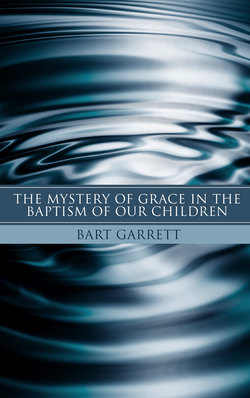Читать книгу The Mystery of Grace in the Baptism of Our Children (Stapled Booklet) - Bart Garrett - Страница 6
На сайте Литреса книга снята с продажи.
Chapter 1 Pastoral Counsel
ОглавлениеWisdom is the God-given ability to discern which issues are most and least significant, which issues are most and least clear. Wisdom helps us distinguish between a mere preference, which is to be held more loosely, and a conviction, which should be held more tightly. Many biblical scholars have demonstrated quite adequately that baptism should be limited to people who have made a profession of faith in Christ and that the practice should not include their children. Other scholars have demonstrated quite adequately that baptism should be extended to those who have professed faith in Christ and to their children. Years ago, as a graduate student, I wrestled with great intensity over this issue. For months, on my bedside table was a stack of about twelve books, precariously positioned, suspended over the pillow on which I slept. Typically, on the subject of baptism, I held to the convictions of the author of the book that sat upon the top of the stack. Needless to say, my opinions on the matter changed every other week.
As people get older they become more certain of fewer things. We begin to understand that there is really a lot that we do not know; yet what we have come to know we hold with even greater fervor and passion than we once did. What are the few things that I am most certain about? Christ died. Christ has risen. Christ will come again. And these three are clear enough in the Scriptures, which we believe speak to us with authority because they come from God. Finally, my only comfort in both life and death is that I am utterly dependent on Jesus for salvation, and I trust that he will come through brilliantly in the end, completing the work of refining someone as selfish and insecure as I am.
Please recognize that baptism is a very important issue, but I do not think it is an essential one. If it were, then while on the cross, Jesus would not have refused the wine-soaked sponge, but would have accepted it in order to sprinkle some on the thief that had just trusted in him for salvation. Yet, instead, with no formal baptismal rite, Jesus responded: “Today, you will be with me in paradise.” It is important that sincere parents come to resolution on this issue. Yet, I am not so sure that their resolution will arise from calculated study and an effort to gather and collect all of the data. There is simply too much to consider on both sides of this issue. Rather, resolution will hopefully come with a sincere submission to the authority of the pastor that serves your respective church.
As a pastor, I long for the day when parishioners will again exercise confidence and trust in their church leadership. With the scandal of sexual and financial impropriety dotting the clerical landscape, I realize that this is a grandiose request. Yet, the Bible is full of admonitions that beckon believers to submit to the authority of their pastors and shepherds. I recognize that the term, “authority,” today is fraught with negative connotation, yet it is important to recognize that all of us submit to authority, whether that authority be the authority of autonomy or whether is be the authority of a particular belief system or ideology. The chief reason that I pastor a church that belongs to a larger denomination is this one: I want to shepherd our people while in submission to many leaders who are more seasoned, and thus, more wise, than I am. I need the accountability. Our church needs the accountability. In a society where large corporations are granted privileges and incentives permitting them the power to make unwise decisions unilaterally, it is important to me that the church remains in submission to the accountability of a larger entity like a denomination.
Likewise, there are many perplexing issues like baptism that create opportunity for sincere church members to submit their confusion and uncertainty to the counsel of the pastoral leadership. On these important, yet non-essential issues, allow the leadership to shape policy—policy that has been wrestled through with a certain degree of theological skill and expertise. Then, be willing to embrace the outcomes. The Bible teaches that teachers will be held to a higher standard of accountability, thus, take the pressure off of your own shoulders and let us bear it for you. Baptism is a very important issue. It is not an essential issue.1 Deference to your leadership and the present community in which you worship is perhaps more pleasing to God than your own personal opinions and premonitions about baptism itself.2
1 See James 3:1.
2 I choose to highlight deference to one’s authority, not because it is primary, but because, today in America, it is largely treated as ancillary. Difficult decisions like these are best made from various sources of input, from our present community, from its leadership, and from our personal convictions as they are informed by the Scriptures.
